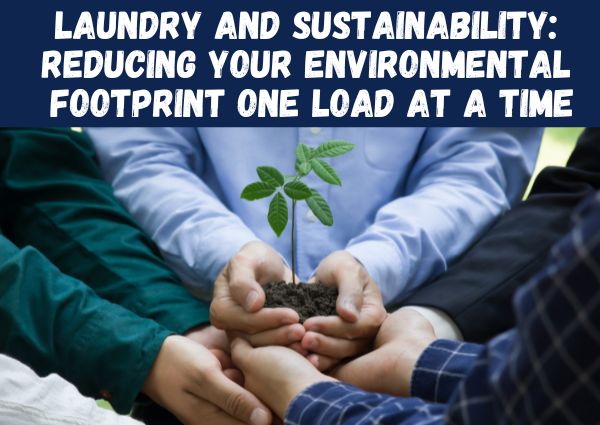In our modern world, sustainability has become an increasingly important consideration in every aspect of our lives, including seemingly mundane tasks like doing laundry. The environmental impact of our laundry habits may not be immediately apparent, but with a few simple changes, we can significantly reduce our carbon footprint and contribute to a healthier planet. In this blog, we’ll explore the various ways in which we can make our laundry routine more sustainable and eco-friendly.
Understanding the Impact
Before delving into sustainable laundry practices, it’s crucial to understand the environmental impact of traditional laundry methods. Conventional washing machines consume large amounts of water and electricity, contributing to water scarcity and greenhouse gas emissions. Additionally, the use of chemical-laden detergents and fabric softeners can harm aquatic ecosystems when they’re released into waterways.
Choose Energy-Efficient Appliances
One of the most effective ways to reduce the environmental impact of laundry is by investing in energy-efficient appliances. Look for washing machines and dryers with high Energy Star ratings, which indicates they consume less energy during operation. Front-loading washing machines are generally more energy-efficient than top-loading ones, as they use less water and require less energy to operate.
Wash with Cold Water
Using hot water for laundry consumes a lot of energy. Washing clothes in cold water instead can save a ton of energy. Most new detergents work just as well in cold water, so you can be eco-friendly without sacrificing cleanliness.
Opt for Eco-Friendly Detergents
Traditional laundry detergents often contain harsh chemicals that can be harmful to both the environment and human health. Switching to eco-friendly detergents made from natural, biodegradable ingredients can help minimize pollution and reduce your ecological footprint. Look for products that are labeled as phosphate-free, chlorine-free, and plant-based.
Use Less Detergent
Many people tend to use more detergent than necessary, thinking that it will result in cleaner clothes. However, using excessive detergent not only wastes money but also contributes to water pollution. Follow the manufacturer’s instructions for detergent dosage, and consider using half the recommended amount for lightly soiled loads. You may be surprised to find that your clothes still come out clean and fresh.
Air Dry Whenever Possible
The use of clothes dryers accounts for a significant portion of household energy consumption. Whenever weather permits, opt for air drying your laundry instead of using a dryer. Hanging clothes on a clothesline or drying rack not only saves energy but also helps preserve the integrity of fabrics and prolongs the lifespan of your clothing.
Choose Sustainable Fabrics
The type of fabrics we choose also has an impact on the environment. Synthetic materials like polyester and nylon are derived from non-renewable resources and can take hundreds of years to decompose in landfills. Opt for clothing made from natural fibers such as organic cotton, hemp, or bamboo, which are more sustainable alternatives. Additionally, consider purchasing high-quality garments that are built to last, reducing the frequency with which you need to replace them.
Practice Responsible Laundry Habits
Simple changes in laundry habits can make a big difference in reducing environmental impact. Wait until you have a full load of laundry before running the washing machine, as this maximizes energy and water efficiency. Pre-treat stains with natural alternatives like vinegar or baking soda instead of chemical-laden stain removers. And consider investing in a microfiber filter for your washing machine to capture microplastics and prevent them from entering the water supply.
Incorporating sustainable practices into our laundry routine may require some initial effort, but the long-term benefits for the environment are well worth it. By choosing energy-efficient appliances, washing with cold water, using eco-friendly detergents, air drying whenever possible, selecting sustainable fabrics, and practicing responsible laundry habits, we can all play a part in reducing our environmental footprint one load at a time. Together, we can create a more sustainable future for generations to come.

